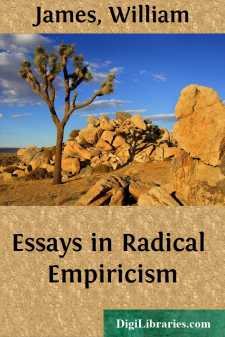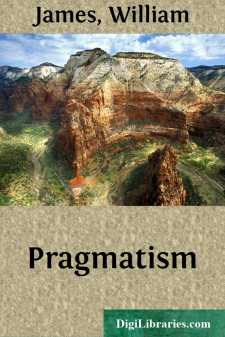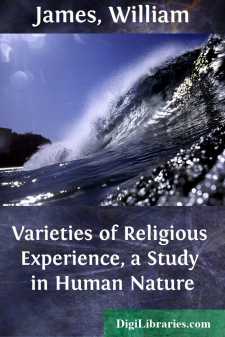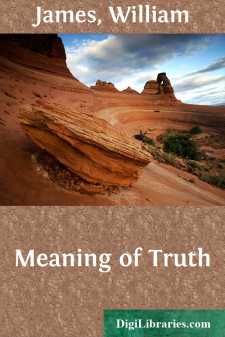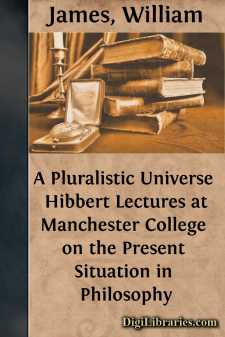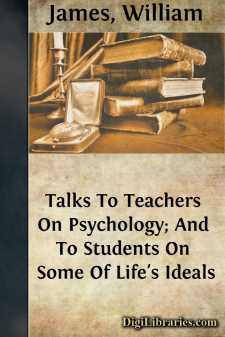Categories
- Antiques & Collectibles 13
- Architecture 36
- Art 48
- Bibles 22
- Biography & Autobiography 813
- Body, Mind & Spirit 142
- Business & Economics 28
- Children's Books 16
- Children's Fiction 13
- Computers 4
- Cooking 94
- Crafts & Hobbies 4
- Drama 346
- Education 46
- Family & Relationships 57
- Fiction 11829
- Games 19
- Gardening 17
- Health & Fitness 34
- History 1377
- House & Home 1
- Humor 147
- Juvenile Fiction 1873
- Juvenile Nonfiction 202
- Language Arts & Disciplines 88
- Law 16
- Literary Collections 686
- Literary Criticism 179
- Mathematics 13
- Medical 41
- Music 40
- Nature 179
- Non-Classifiable 1768
- Performing Arts 7
- Periodicals 1453
- Philosophy 64
- Photography 2
- Poetry 896
- Political Science 203
- Psychology 42
- Reference 154
- Religion 513
- Science 126
- Self-Help 84
- Social Science 81
- Sports & Recreation 34
- Study Aids 3
- Technology & Engineering 59
- Transportation 23
- Travel 463
- True Crime 29
Essays in Radical Empiricism
by: William James
Description:
Excerpt
The present volume is an attempt to carry out a plan which William James is known to have formed several years before his death. In 1907 he collected reprints in an envelope which he inscribed with the title ‘Essays in Radical Empiricism’; and he also had duplicate sets of these reprints bound, under the same title, and deposited for the use of students in the general Harvard Library, and in the Philosophical Library in Emerson Hall.
Two years later Professor James published The Meaning of Truth and A Pluralistic Universe, and inserted in these volumes several of the articles which he had intended to use in the ‘Essays in Radical Empiricism.’ Whether he would nevertheless have carried out his original plan, had he lived, cannot be certainly known. Several facts, however, stand out very clearly. In the first place, the articles included in the original plan but omitted from his later volumes are indispensable to the understanding of his other writings. To these articles he repeatedly alludes. Thus, in The Meaning of Truth (p. 127), he says: “This statement is probably excessively obscure to any one who has not read my two articles ‘Does Consciousness Exist?’ and ‘A World of Pure Experience.’” Other allusions have been indicated in the present text. In the second place, the articles originally brought together as ‘Essays in Radical Empiricism’ form a connected whole. Not only were most of them written consecutively within a period of two years, but they contain numerous cross-references. In the third place, Professor James regarded ‘radical empiricism’ as an independent doctrine. This he asserted expressly: “Let me say that there is no logical connexion between pragmatism, as I understand it, and a doctrine which I have recently set forth as ‘radical empiricism.’ The latter stands on its own feet. One may entirely reject it and still be a pragmatist.” (Pragmatism, 1907, Preface, p. ix.) Finally, Professor James came toward the end of his life to regard ‘radical empiricism’ as more fundamental and more important than ‘pragmatism.’ In the Preface to The Meaning of Truth (1909), the author gives the following explanation of his desire to continue, and if possible conclude, the controversy over pragmatism: “I am interested in another doctrine in philosophy to which I give the name of radical empiricism, and it seems to me that the establishment of the pragmatist theory of truth is a step of first-rate importance in making radical empiricism prevail” (p. xii).
In preparing the present volume, the editor has therefore been governed by two motives. On the one hand, he has sought to preserve and make accessible certain important articles not to be found in Professor James’s other books. This is true of Essays
, , , , , , ,, and. On the other hand, he has sought to bring together in one volume a set of essays treating systematically of one independent, coherent, and fundamental doctrine. To this end it has seemed best to include three essays (,, and), which, although included in the original plan, were afterwards reprinted elsewhere;and one essay,, not included in the original plan. Essays,, andare indispensable to the consecutiveness of the series, and are so interwoven with the rest that it is necessary that the student should have them at hand for ready consultation. Essaythrows an important light on the author’s general ‘empiricism,’ and forms an important link between ‘radical empiricism’ and the author’s other doctrines....

